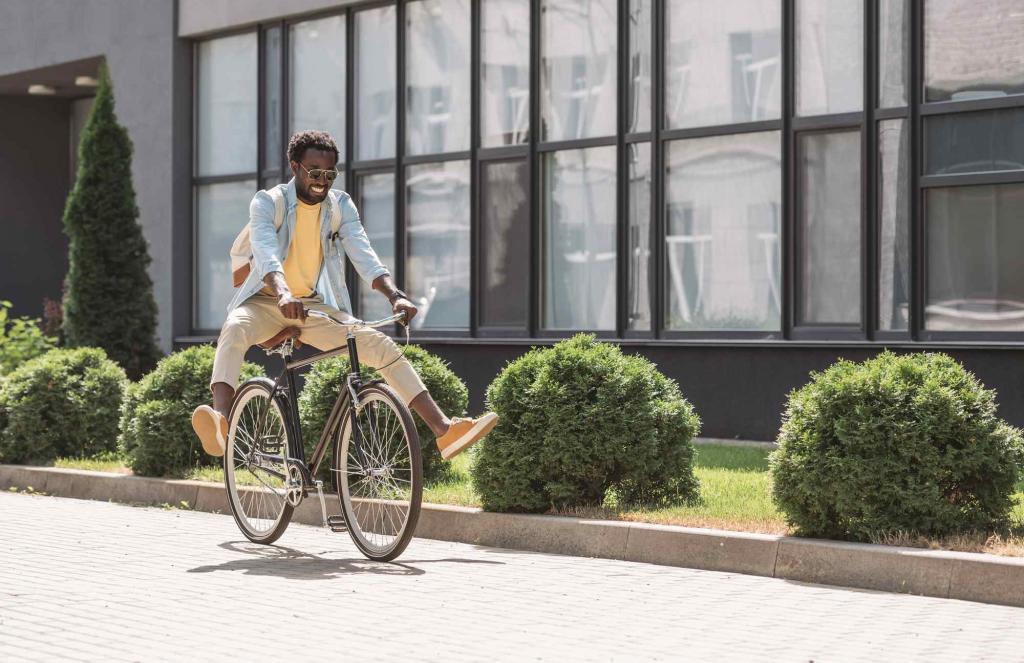Thessaloniki gets ready for its metro launch in November
The underground rapid transit lines have been under construction for almost two decades due to various project delays
 TheMayor.EU logo
TheMayor.EU logo 
63% of all road accidents in Graz, that result in injury or death involve cyclists, Source: Depositphotos
Here is what you need to know about cycling laws in Austria
Today, the Graz cycling police reported on the infraction rates of cyclists in the city. The officers have registered 600 fines and over 1,800 violations since they were deployed on 1 May. Because many of the offences had to do with drunk cycling, the local police department announced more focused checks for the future.
According to their statement, people deliberately chose to ride a bike instead of a motor vehicle, when they planned on drinking. Graz Police Chief Thomas Heiland was quoted by the ORF, the National Austrian Broadcasting Network, explaining that 63% of traffic accidents with injury or death in the city involved cyclists.
While the police did not provide specific data on how many of those involved alcohol, Mr Heiland emphasised that the total number of accidents could go even higher thanks to people’s newfound drinking and cycling habits.
This has sparked a discussion on what cycling laws should be in force in Austria as citizens view drunk cycling as more permissible than driving a car under the influence.
The average speed of an amateur cyclist hovers around 30 kilometres, according to measurements taken during Tour de France. This means that, quite often, cyclists are the ones who are at risk, considering that most cities lack a comprehensive cycling infrastructure and people are forced to compete with cars for road space.
Cycling laws in Austria are fairly non-prohibitive and do offer people some leeway in considering that cyclists are uniquely vulnerable to road accidents. At the same time, they do tend to treat cyclists as part of regular road traffic, because they use regular streets and interact with pedestrians.
One of the big regulations is wearing a helmet, which is absolutely mandatory for all cyclists or cycling passengers under the age of 12. At the same time, parents or guardians are responsible if kids are not wearing helmets.
The bike itself needs to be equipped with both a front and rear light, and cyclists always need to give a signal when turning. They also have to give way - yield and stop signs apply to them - as well as follow the speed limit.
Furthermore, cycling against the flow of traffic is only permitted if there is an additional sign. Pedestrians have priority over bikes, so pedestrian zones are prohibited for bikes unless there is a sign. On the road, cyclists must always use the road and if there is a bike lane, they have to use that. Talking on the phone without a hands-free device is also forbidden.
With regards to alcohol, the legal limit is 0.8 permilles or 0.4 milligrams. Above 0.8 permilles, the fine is between 800 and 3,700 euros. Above 1.2 permilles, the fine is between 1,200 and 4,400 euros, while above 1.6, the fine is from 1,600 to 5,900 euros. Also, if a cyclist refuses to take an alcohol test, he is eligible for the maximum penalty bracket.

The underground rapid transit lines have been under construction for almost two decades due to various project delays

Now you can get your wine in Talence by paying directly in Bitcoin

That’s because the state has to spend money on updating the railway infrastructure rather than subsidizing the cost of the popular pass

Rethinking renewable energy sources for the urban landscape

The examples, compiled by Beyond Fossil Fuels, can inform and inspire communities and entrepreneurs that still feel trepidation at the prospect of energy transition

Now you can get your wine in Talence by paying directly in Bitcoin

The 10th European Conference on Sustainable Cities and Towns (ESCT) sets the stage for stronger cooperation between the EU, national and local level to fast track Europe's transition to climate neutrality.

At least, that’s the promise made by the mayor of Paris, Anne Hidalgo

The underground rapid transit lines have been under construction for almost two decades due to various project delays

At least, that’s the promise made by the mayor of Paris, Anne Hidalgo

Hostal de Pinós is located in the geographical centre of the autonomous region

Despite its church-y name, the district has long been known as the hangout spot for the artsy crowds

Urban dwellers across the EU are having a say in making their surroundings friendlier to people and the environment.

Forests in the EU can help green the European construction industry and bolster a continent-wide push for architectural improvements.

Apply by 10 November and do your part for the transformation of European public spaces

An interview with the Mayor of a Polish city that seeks to reinvent itself

An interview with the newly elected ICLEI President and Mayor of Malmö

A conversation with the Mayor of Lisbon about the spirit and dimensions of innovation present in the Portuguese capital














